
Address of His Holiness Pope Pius XII to the Second World Congress of the Lay Apostolate October 5, 1957.
Six years ago, beloved sons and daughters, We said at the close of Our address to the first World Congress for the Lay Apostolate: "If there is a power in the world capable . . . of disposing souls to a sincere reconciliation and to a fraternal union among people, it is certainly the Catholic Church. You can rejoice in this with pride. It is up to you to make your contribution with all your strength." (Discorsi e Radiomessaggi, vol. XIII, p. 301.)
Today we look with pleasure upon this select assembly which has brought together for the second World Congress 2,000 representatives, including cardinals, bishops, priests, and prominent laymen from more than 80 nations. We extend to you Our paternal and cordial welcome, and congratulate you for the important work done in a few years time toward the fulfillment of the objectives that have been set before you.
The documents assembled by the "Standing Committee for International Congresses for the Lay Apostolate" point out, first of all, that many Bishops have written pastoral letters on this subject. They also call to mind the series of national and international Congresses inspired by the Congress of 1951 and intended to further its influence. These took place in India, Sudan, Switzerland, Belgium (where more than 3,000 lay leaders met at Louvain), Mexico, Spain, and Portugal. Others were held in Kisubi (Uganda) for all Africa, in Manila for Asia, and in Santiago and Montivideo for 13 countries of Central and South America. Besides these, meetings in preparation for the second World Congress were held at Gazzada, Castelgandolfo, Rome, Wurzburg and Paris.
Without any doubt, the first World Congress for the Lay Apostolate was a resounding appeal which every where produced a great many echoes. It prompted Catholics to consider not only their duties toward themselves, but also their duties toward the Church, civil society, and all mankind. It forcefully emphasized the importance of personal participation by the laity in the organization and successful execution of many projects in the religious, social, and cultural fields. And thus it gave the laity a greater awareness of their responsibilities in modern society and a greater courage with which to face these responsibilities. Still another notable contribution of that Congress was the promotion of cooperation and coordination among the different forms of the lay apostolate. You have chosen "Laymen in the Crisis of the Modern World: Responsibilities and Training" as the theme of this present congress. This topic has been carefully prepared by theologians and specialists in social and international questions. In complying with your wishes and addressing you at the start of your Congress, We intend to complete what We said six years ago by some observations on the guiding principles of the lay apostolate and on certain practical matters concerning the formation and activity of the lay apostle.
1. SOME BASIC ASPECTS OF THE LAY APOSTOLATE
As a starting point for these considerations We shall take one of the questions meant to clarify the nature of the lay apostolate: "Does not the layman who is en trusted with teaching religion-that is, with the missio canonica, the ecclesiastical mandate to teach-and whose teaching is perhaps his only professional activity, pass by this very fact from the lay apostolate to the 'hierarchical apostolate?' "
In answering this question it must be remembered that Christ granted His Apostles a two-fold power: first, the priestly power to consecrate, which was given in full to all the Apostles; second, the power to teach and govern, that is, to communicate to men in God's name the infallible truth which binds them, and to establish the rules which regulate Christian life.
These powers of Apostles were passed on to the Pope and Bishops. The Bishops, through the ordination of priests, transmit to others to a precise extent the power to consecrate; the power to teach and govern belongs to the Pope and Bishops.
Thus a two-fold distinction must be taken into ac count when we speak of the "hierarchical apostolate" and the "lay apostolate;" first, between pope, bishops, and priests, on the one hand, and laymen on the other; second-within the ranks of the clergy itself-between those with full power to consecrate and govern, and the rest of the clergy. The first (pope, bishops, and priests) necessarily belong to the clergy. Even if a layman were elected pope, he could accept the election only if he were fit for ordination and willing to be ordained But the power to teach and govern, as well as the divine gift of infallibility, would be granted to him from the very moment of his acceptance, even before his ordination.
Now, this two-fold distinction must be taken into consideration in answering the question proposed above. In the present case, we are not concerned with Holy Orders, but with the power to teach which is held only by those invested with ecclesiastical authority. Others, priests or laymen, cooperate with those in authority when they are entrusted with teaching faithfully and guiding the faithful. (Cfr. Canons 1327 and 1328.)
Priests-who act "vi muneris sacerdotalis" ('by the power of their priestly office")-and laymen can receive the mandate for these functions, a mandate which, in some circumstances, can be the same for both. But they are distinguished by the fact that one is a priest and the other a layman, and, as a consequence, the apostolate of one is priestly, and that of the other is lay. The value and efficacy of the apostolate exercised by a teacher of religion depend on his personal ability and supernatural gifts. Lay teachers, Religious, catechists in mission countries, and all whom the Church entrusts with teaching the truths of the faith, can properly apply to themselves the Lord's words: "you are the salt of the earth," and "You are the light of the world." (Matt. 5: 13- 14) Layman Should Cooperate in an Organized Way
It is clear that the ordinary layman can resolve and it is highly desirable that he should so resolve-to cooperate in a more organized way with ecclesiastical authorities and to help them more effectively in their apostolic labor. He will thereby make himself more dependent on the Hierarchy, which is alone responsible before God for the government of the Church. The layman's acceptance of a particular mission, of a mandate of the Hierarchy, may associate him more closely with the spiritual conquest of the world being conducted by the Church under the direction of her pastors, but this does not make him a member of the hierarchy or give him the powers of Holy Orders or of jurisdiction that remain strictly bound to reception of the Sacrament of Holy Orders in its various degrees.
We have not yet considered those Orders which precede the priesthood, and which, in the present practice of the Church, are only conferred in preparation for ordination to the priesthood. The duties connected with Minor Orders have long been performed by laymen, and We know that thought is being given at present to the introduction of a diaconate conceived as an ecclesiastical office independent of the priesthood. Today, at least, the idea is not yet ready for application. Should it someday become so, what We have just said would still hold true and this diaconate would take its place with the priesthood in the distinctions We have just drawn. Responsibility of Laymen.
All Should Be Active
It would be a misunderstanding of the Church's real nature and her social character to distinguish in her a purely active element, Church authorities, and a purely passive element, the laity. All the members of the Church, as We Ourselves said in the Encyclical Mystici Corporis Christo (The Mystical Body of Christ), are called upon to cooperate in building up and perfecting the Mystical Body of Christ. (Cfr. AAS 36, 1943, p. 241.) They are all free persons and should; therefore, be active.
The term "emancipation of the layman" is abused at times when it is used in a sense that distorts the true character of the relations existing between the "teaching Church" and the "Church that is being taught," between priests and laymen. Concerning these relations, let Us simply note that the tasks before the Church today are too vast to leave room for petty disputes. In order to preserve the proper sphere of action of both priest and layman, it is enough that all should have a sufficient spirit of faith, disinterestedness, mutual esteem, and mutual confidence. Respect for the priestly dignity has always been one of the most characteristic traits of the Christian community; on the other hand, laymen also have rights, and the priest must recognize them.
The layman is entitled to receive from the priest all those spiritual benefits which are necessary if he is to achieve the salvation of his soul and attain Christian perfection. (Canons 87 and 682.) In what concerns the Christian's fundamental rights, he may assert his demands. (Canons 467, 1; 892, 1.) The meaning and aim of the Church's whole life is involved here, as well as the responsibility before God of the priest and the lay man.
Exclusive consideration of the Church's social activity inevitably creates uneasiness. This activity is not an end in itself-either in general or in the Church-for the community is ultimately at the service of the individual, and not vice-versa. History shows that from the Church's earliest days laymen have taken part in the activity which the priest carries out in the service of the Church, and today more than ever they must cooperate with greater and greater fervor "for building up the Body of Christ" (Ephesians 4 :12) in all forms of the apostolate, especially by making the Christian spirit penetrate all family, social, economic, and political life.
One of the reasons for this appeal to the laity is certainly the shortage of priests, but even in the past a priest expected the cooperation of laymen. Let Us mention only the considerable contribution which lay Catholic men and women instructors, as well as Religious, have made to the teaching of religion and, in general, to Christian education and the formation of youth. Think, for instance, of the Catholic schools of the United States. The Church is grateful to them for this contribution, for it was a necessary complement to priestly work. There still remains the fact that the lack of priests is especially noticeable today and threatens to become even more so. We are thinking especially of parts of Latin America, whose people and countries are undergoing rapid development at the present time. The work of laymen there is all the more necessary.
Consecration of the World Is Laymen's Job
Furthermore, aside from the small number of priests the relations between the Church and the world require the intervention of lay apostles. The consecratio mundi (consecration of the world) is essentially the work of the laymen themselves, of men who are intimately a part of economic and social life and who participate in the government and in legislative assemblies. In the same way, only the workers themselves can establish the Catholic cells which must be created among workers in every factory and bring back to the Church those who have strayed from her.
Principle of Subsidiarity and Complementarity
In this matter ecclesiastical authorities should apply the general principle of subsidiarity and complementarity. They should entrust the layman with tasks that he can perform as well or even better than the priest and allow him to act freely and exercise personal responsibility within the limits set for his work or demanded by the common welfare of the Church.
It will furthermore be remembered that the Lord's words: "Dignus est . . . operarius mercede sua" ("The laborer deserves his wages") (Luke 10:7) also apply to him. We have often been struck by the fact that the obligation to give these coworkers the salary which is due them is recalled in missionary congresses for the lay apostolate. The catechist is often totally occupied with his missionary work and, therefore, he and his family depend for a living on what the Church gives them. On the other hand, the lay apostle must not take offense if he is asked not to make excessive demands upon the mission that supports him.
On a previous occasion We described those laymen who assumed all their responsibilities. They are, We said, "men constituted in their inviolable integrity as the living images of God; men who are proud of their personal dignity and their healthy freedom; men justly jealous of being the equals of their fellowmen in all things pertaining to the most intimate matters of human dignity; men attached in a stable manner to their land and their tradition." (Speech to the New Cardinals, February 20, 1946-Discorsi e Radiomessaggi vol. VII, p. 393). Such a wealth of qualities supposes that one has learned self-control and self-sacrifice, and has learned to draw constant light and strength from the sources of salvation which the Church offers.
The materialism and atheism of a world which millions of believers must live in isolation requires that all should be formed into strong personalities. If not, how will they resist being led astray by the masses which surround them? What is true of all is true above all of the lay apostle who is committed not only to defend himself, but also to win others over.
This does not in any way diminish the value of precautionary measures, such as laws for the protection of youth, the censorship of films, and all the measures which the Church and state adopt to preserve the moral climate of society from corruption. In order that the young may be educated in their responsibilities as Christians, it is important that their spirit and heart be kept in a healthy atmosphere. One could say that institutions must be so perfect as to be able to insure by themselves the protection of the individual, while the individual must be formed with a view to the autonomy of his adult Catholic life, as though he were to be left on his own to surmount all difficulties.
Tasks Derive from Church's Mission
We shall now develop the concept of the lay apostolate in its strict sense in light of Our explanation of the hierarchical apostolate. The lay apostolate consists, in this, that laymen undertake tasks deriving from the mission Christ entrusted to His Church. As we have seen, this apostolate always remains a lay apostolate, and does not become a hierarchial apostolate even when it is exercised through the mandate of the Hierarchy.
Therefore the apostolate of prayer and personal example should be referred to as an "apostolate" only in the broad or improper sense of that term. In this respect, We can only confirm the remarks We made in Our letter to the Third World Union of Christian Teachers held in Vienna: "Whether the professional activities of Catholic men and women teachers does or does not belong to the lay apostolate in the strict sense, you must be convinced, beloved sons and daughters, that the Christian teacher who by professional formation and personal dedication is equal to his task, and out of the deep convictions of his Catholic faith gives good example to the youth entrusted to him, exercises in the service of Christ and the Church an activity similar to the noblest of the lay apostolates." (August 5, 1957)
This statement is applicable to all the professions, particularly to Catholic doctors and engineers, especially at the present time when they are being called into underdeveloped countries and mission territories in the service of local governments or UNESCO and other international organizations, and through their life and the practice of their profession provide an example of fully developed Christian life.
Catholic Action Not a Monopoly of the Lay Apostolate
Catholic Action always bears the stamp of an official apostolate of laymen. Two remarks must be made here: the mandate, especially that of teaching, is not given to Catholic Action as a whole, but to its specially organized members according to the will and the choice of the Hierarchy. Catholic Action must not, moreover, claim a monopoly of the lay apostolate, for along with it there remains the free lay apostolate. Individuals or groups can place themselves at the disposal of the Hierarchy and be entrusted, for a fixed or indeterminate period of time, with certain tasks for which they receive a mandate. It might therefore be asked whether they do not also become members of Catholic Action. The important point is that the hierarchical Church, the bishops and the priests, can choose lay coworkers for themselves when they find persons able and willing to help them.
It seems necessary here to discuss, at least in its broad outline, a suggestion which has been communicated to Us very recently. It was pointed out that there is today a regrettable and rather widespread uneasiness which arises from the use of the term "Catholic Action."
In fact, some think that this expression is reserved to specific types of organized lay apostolates to which it gives, in public opinion, a sort of monopoly. All organizations that do not enter into the framework of Catholic Action thus conceived, it is said, seem to have a less authentic character and a secondary importance. They seem to receive less support from the Hierarchy, and apparently remain on the fringe of the essential apostolic effort of the laity. It would appear, then, that a particular form of lay apostolate, namely Catholic Action, is triumphing to the detriment of others and that we are witnessing the seizure of the whole by a part. Even more, it would seem that a point would be reached, in practice, where apostolic movements not bearing the label of Catholic Action would be condemned and barred from the diocese.
Consider Reform of Terminology and Organization
To solve this difficulty two practical reforms are being considered: one is a change in terminology; the other, its corollary, is an organizational reform. First of all, it would be necessary to restore to the term "Catholic Action" its generic sense and to apply it only to all organized movements of the lay apostolate recognized as such, nationally or internationally, either by the bishops on a national level or by the Holy See for movements desiring an international status. It would then be sufficient for each movement to be designated by its name and be characterized by its specific form, and not by a common term.
The organizational reform would follow the reform of terminology. All groups would belong to Catholic Action and would preserve their own name and their own autonomy, but together they would form, as Catholic Action, a federated unit. Every bishop would remain free to accept or reject a movement, to entrust it or not entrust it with a mandate, but he could not refuse it recognition on the ground that it does not belong to Catholic Action by its nature. The eventual fulfillment of such a project naturally requires attentive and prolonged reflection. Your Congress is a good occasion for discussion and examination of this problem and other similar questions.
There is one more thing which must be said before We conclude these abstract considerations of the relations between lay apostolate and ecclesiastical authority It is sufficient to repeat what We laid down in 1951 as a general rule: that the lay apostolate "must always remain within the limits of orthodoxy and must not oppose itself to the legitimate prescriptions of competent ecclesiastical authorities." (Discorsi e Radiomessaggi, vol. XIII, p. 298)
Since that time We have been compelled to refute an erroneous opinion on "lay theology" which derived from an inexact concept of the responsibility of the layman. (Allocution "Si diligis," May 31, 1954-Discorsi e Radiomessaggi, vol. XVI, p. 45) The term "lay theology" is without any meaning whatsoever. The rule which applies to the lay apostolate in general, which We have just recalled, is naturally valid, and even more so for "lay theologian." But if he wishes to publish writings on theological matters, the layman also needs the explicit approval of the ecclesiastical authority.
The activity of the Catholic layman is especially necessary in the fields in which theological research borders on that of the secular sciences. Recently, acting upon the initiative of the "Gorres-Gesellschaft," a group of theologians and naturalists agreed to meet regularly and discuss questions of common interest. We can only congratulate them for such initiative.
II FORMATION OF LAY APOSTLES: EXERCISE OF THE LAY APOSTOLATE
A few remarks will suffice on the subject of the formation of lay apostles.
Not all Christians are called to engage in the lay apostolate in its strict sense. We have already said that the bishop should be able to choose coworkers from those whom he finds willing and able, for willingness alone is not sufficient. Lay apostles will, therefore, al ways form an elite, not because they stand apart from others but, quite the contrary, because they are capable of attracting and influencing others. We thus understand that they must possess, besides the apostolic spirit which animates them, a quality without which they would do more harm than good-tact.
On the other hand, to acquire the necessary competence, it is obviously necessary to make the effort demanded by serious training. Such training, whose necessity for teachers no one doubts, is just as necessary for every lay apostle, and We have learned with pleasure that the meeting at Kisuba emphatically stressed intellectual formation.
Laymen who administer ecclesiastical properties should be chosen with prudence and after great consideration. When incompetent persons hold these positions and cause some damage to Church properties, they are less to blame than the authorities who sought their assistance.
At the present time, even the lay apostle who labors among workers in factories and business concerns needs a sound knowledge of economics, social, and political affairs, and must also be familiar, therefore, with the Church's social teachings. There is one apostolic organization for men which trains its members in a "social seminar" which accepts 300 members each winter semester and requires 20 lecturers: university professors, judges, economists, lawyers, doctors, engineers, linguists, and scientists. We believe that this precedent is worth following.
The training of lay apostles will be cared for by organizations of the lay apostolate itself. These may avail themselves of the help of the secular clergy and the apostolic religious orders. We are certain that they will also have the valuable cooperation of the secular institutes. As regards the formation of women for the lay apostolate, women Religious already have fine achievements to their credit in mission countries and elsewhere.
Formation of Apostolic Spirit in the Young
We wish to draw your attention particularly to one aspect of the education of young Catholics: the formation of their apostolic spirit. Instead of giving way to a slightly selfish tendency by thinking only of the salvation of their own souls, they should be made aware of their responsibilities toward others and of the ways to help others.
No one doubts that prayer, sacrifice, and courageous action to win others to God constitute very definite guarantees for personal salvation. We do not in any way condemn what has been done in the past because there have been many remarkable achievements in this respect. We refer, among other things, to the many Catholic weeklies which have sustained popular enthusiasm for the charitable activities of the apostolate. Movements such as that of the Holy Childhood have given proof in this respect of fruitful initiatives.
But an apostolic spirit takes root in the child's heart not only at school, but long before the school age, and it is engendered by the care of the mother herself. The child should learn how to pray at Mass and offer the Sacrifice with an intention which embraces the whole world and, above all, the important interests of the Church. Examining his conscience concerning his duties toward his neighbor, he will not only ask him self, "Have I harmed my neighbor?" but will also ask, "Have I shown him the way which leads to God, to Christ, to the Church, and to salvation?"
As for the exercise of the lay apostolate, since the observations We made earlier on matters of principle dealt with this at several points; We shall only refer to certain fields of the apostolate from which an urgent appeal rises at present.
The Parish
Is it not a comforting sign that even today adults consider it an honor to serve at the altar? And those who contribute through music and singing to the praise of God and the edification of the faithful certainly exercise a praiseworthy lay apostolate.
The lay apostle who works in a specific neighborhood and is entrusted with a group of houses belonging to the parish must try to acquire accurate information about the religious status of the inhabitants. Are the housing conditions bad or inadequate? Who needs the assistance of charitable organizations? Are there marriages to be regularized? Are there children to be baptized? What is the condition of the news stands, bookshops, and lending libraries in the neighborhood? What do the young folk and adults read? The complexity and often delicate character of the problems to be solved in this type of apostolate make it necessary to call upon the services of only a chosen elite who are gifted with tact and true charity.
The Press, Radio, Movies and Television
Publishing houses and bookshops provide an excel lent field for the apostolate. We are glad to hear that the majority of Catholic publishers and book sellers regard their profession as a service to the Church.
A parish library can be correctly run by lay people, who normally should be experienced readers. Good Catholics also have an opportunity of doing good in lending libraries.
The Catholic newspaperman who exercises his profession in a spirit of faith is quite naturally a lay apostle. At the Manila Congress a request was made for Catholic journalists and a Catholic press for Asia. It is, furthermore, only normal that Catholics should cooperate with the press, even if only in matters of local interest.
In respect to the radio, movies, and television, We refer to what We said in the encyclical Miranda prorsus (Remarkable Inventions) issued on September 8 of this year. There is a dual task to be accomplished here: avoid all elements of corruption and promote Christian values. There is by actual count an annual attendance of 12 billion in places of entertainment. Yet too many of the shows offered do not reach the cultural and moral level which one has the right to expect.
The most regrettable fact is that films very often portray a world in which men live and die as if God did not exist. The problem, then, is to prevent mortal dangers to the faith and the Christian way of life. One could never have to go before God with the responsibility of having tolerated such a situation, and one must make every effort to change it. We are grateful, then, to all those who, in the fields of radio, movies, and television, carry on a courageous, intelligent, and systematic work, which has already been rewarded with results which give grounds for serious hope. We commend in particular the associations and movements whose objective it is to make Christian principles prevail in the use of moving pictures.
In the parishes, or at least in the deaneries, working groups will train their members and coworkers as well as the public in their duty with regard to radio, movies, and television, and will help them discharge these duties. In so far as television is concerned, it is indispensable for the Church to be represented on the committees entrusted with organizing programs and for Catholic experts to be among the producers. Both priests and the laity are encouraged to take part in this task. In this field the priest may be as competent as the layman. But whatever the case may be, the participation of the laity is required.
The Working World
Every year 20 million young people throughout the world enter the ranks of labor. Among them there are Catholics, but there are also millions of others who are ready for religious formation. You must feel responsible for them all. How many does the Church keep? How many does she win back? Since the climate of industrial work is dangerous to young men, the Catholic "cell" must intervene in workshops and also on trains, buses, in families, and neighborhoods. It will act everywhere to give tone, exercise beneficial influence, and spread a new life. Thus a Catholic fore man will be the first to take care of the new arrivals. For instance, he will help them to find decent lodgings and make desirable friendships, and he will put them in touch with local church life. He will assist them in adapting themselves easily to their new position in life.
The appeal which We made last year to German Catholics also applies to lay apostles the whole world over, wherever there is technical and industrial activity. We told them: "You have been given one important task, that of giving the world of industry a Christian form and structure . . . Christ, by Whom all things were created, the Lord of the world, is also the Lord of the present-day world, because this also is called upon to be a Christian world. It is up to you to stamp it with the imprint of Christ." (Broadcast message to Cologne Catholic Day on Sept. 2, 1956-Discorsi e Radiomessaggi, vol. XVIII, p. 397.) This is certainly the most onerous but also the greatest task of the apostolate of the Catholic laity.
The European Coal and Steel Authority
Recently a congress was held in Luxembourg on the social problems of the European Coal and Steel Authority. The report made by ICARES (International Catholic Institute for Social-Ecclesiastical Research) contained three points on this subject which, in Our opinion, are of particular importance to the problem We are dealing with here. First, the mining population in the territory of the Authority, which extends from the Ruhr to Belgium and the Pyrenees, consists mainly of emigrants from various European countries. Secondly, where religious practice is concerned, the miners, in comparison with their social environment, are only a small minority because they are more easily uprooted than other categories of workers. They therefore are in need of a social reintegration. Thirdly, and this applies to the life of the Catholic community, the religious behavior of the emigrant miner is closely dependent on the position of the family, on housing conditions, and on his more or less rapid integration into the environment in which he is received. The report also states that the lay apostolate must aim at applying to the miner in a concrete way the principles of the Apostolic Constitution Exsul familia.
It is absolutely necessary to prevent the miners of the E.S.C.A. from becoming the prey of atheist movements and to make every effort to save them and lead them to God and to Christ.
Latin America
The position of the Church in Latin America has been characterized by a rapid increase in population In 1920 the population was 92 million, whereas it is now nearly 200 million. The big cities are crowded; technical and industrial progress is making rapid strides forward. But on the other hand, there are not enough priests. Instead of 160,000, estimated to be the bare minimum needed, there are hardly 30,000. Finally, there are four mortal dangers threatening the Church: the inroads of Protestant sects; the secularization of the whole way of life; Marxism, whose presence is felt in the universities, and is very active and even dominant in almost all the labor organizations; and, finally, a troublesome spiritism.
Under these circumstances We feel that the lay apostolate has three main responsibilities. The first of these is the formation of lay apostles to compensate for the shortage of priests engaged in pastoral work. In certain countries where communism is in power, it is reported that religious life has been able to continue underground, thanks to the work of lay apostles, even after the arrest of the priests. What is possible in times of persecution must also be possible in times of comparative peace. And so, efforts must be made to begin the systematic training of lay apostles for work in the giant parishes of 50,000 and 100,000 souls, at least while there is a shortage of priests.
Secondly, Catholic men and women should be introduced into the ranks of teachers and educators from the elementary school to the university.
Thirdly, lay apostles should be directed into economic, social, and political life. There has been a complaint that in the Latin American countries the social teachings of the Church are inadequately known. There is, then, a need for thorough training in social doctrine and for a Catholic worker's elite which will patiently draw labor organizations away from the influence of Marxism. Associations of Catholic workers are already producing remarkable results in many places. We are very grateful to them, but in a continent as Catholic as Latin America such activity should be the rule and not the exception.
In the Asian and African Missions
Of the many problems We could discuss here, We shall mention a few which seem to Us the most important.
At the Lay Congress in Manila an authorized spokesman discussed a task whose precise nature and concept have to be established by the Church's hierarchy, but which, in its thousand forms, must be carried to completion by laymen. The problem is to utilize Catholic forces-and these can be very considerable-so that national life can develop peaceably, free from extreme nationalism and national antagonisms in spite of all the bitterness which has built up over the past, joining the values of Western culture to those of national culture, and adapting the usages of the Church to those local customs and practices which are not objectionable.
Except in the Philippines, Catholics are in a minority among the peoples of Asia. This is also true of the greater part of Africa. For this reason Catholics should distinguish themselves all the more by the example they give. In particular, they should take a great interest in economic, social, and political phases of public life. As a matter of fact, they have won the esteem of non-Catholics wherever they have done this. And since Catholic social thought is still little known in Asia, European and American universities should be willing to help Asian and African Christians who wish to prepare themselves for public office.
Competent teachers must be trained to work in schools of every level. Both in Asia and Africa Catholic schools are highly regarded by non-Catholics. For our part, We wish teachers of religion would take great care not to separate doctrine from life.
A word on the use of catechists. Asia and Africa have a population of a billion and a half, among whom are about 26 million Catholics, cared for by 20,000 to 25,000 priests and 74;000 catechists. If the teachers who are often the best catechists, are counted into this last figure, it reaches 160,000.
The catechist is perhaps the classic example of the lay apostle, both by the very nature of his profession and because he makes up for the shortage of priests. It is said that, at least among African missionaries, a missionary with six catechists accomplishes more than do seven missionaries. The reason is that a competent catechist works in familiar surroundings and is quite familiar with local languages and customs; he makes contact with individuals more easily than does the missionary from a far-off land.
Lay Missionaries
Catechists, then, are native lay apostles. But there is also an apostolate for foreign lay and lay-assistant missionaries. Doctors, engineers, manual laborers in various fields should support the work of the missionary priest by their good example and their professional activities, and above all by the training they can give the natives. Along with professional training, or after its completion, these lay missionaries should be given a spiritual training orientated toward their missionary work. Twelve such movements are now in existence, coordinated by a Secretariat General in Milan. But the lay missionary movement i3 just beginning to develop and can only accept an elite.
With regard to its economy, 70 percent of Asia is an agricultural region, and it has been said with truth that the farmer is both the most important and the most neglected person in Asia. Catholics must realize the need to examine their consciences on this subject. In the Philippines, the Catholic laymen who work be side the priests for the social and spiritual betterment of the farmer are deeply appreciated lay apostles.
The women of Asia and Africa offer countless opportunities for action to the women's lay apostolate: in all kinds of schools, in the fight against child marriage, forced marriage, divorce, and polygamy. This work includes the preparation of young women for marriage- a work being carried out successfully by nuns in Hong Kong, the Belgian Congo, and Uganda-and the formation of groups of Catholic women who can thus assist one another and give charitable help to the non-Catholic women of their area. This apostolate for women is undoubtedly difficult, but it is full of hope. In all the mission territories where Catholicism has developed, experience shows that woman's dignity is more respected.
Dynamism of Young Catholics in Africa
In Africa, particularly, We witness with joy and gratitude the extraordinary dynamism of young Catholics in cultural, social and political fields. They should cooperate with the Christian-inspired trade-union movements, as is being done in Vietnam, Equatorial Africa, and West Africa, and should establish cooperatives for purchasing and supplying. They should take part in national movements and community affairs, for the Church does not simply inspire piety: she meets all of life's problems. As a bearer of his continent's spiritual riches, the young African layman should bear witness to this spiritual wealth and cultivate it in his life and activities.
In conclusion, We give you two directives: first, cooperate with neutral and non- Catholic organizations and movements on the condition that and to the extent that you thereby serve the common good and the cause of God; secondly, play an important part in international organizations. This recommendation applies to all, but particularly to agricultural specialists.
CONCLUSION
There has always been a lay apostolate in Christ's Church. Saints such as Emperor Henry III, Stephen, founder of Catholic Hungary, and Louis IX of France were lay apostles, though this was not consciously realized at first, and the phrase "lay apostle" did not exist. There were also women, like St. Pulcheria, sister of Emperor Theodore II, and Mary Ward, who were lay apostles.
There is a lively awareness of the lay apostolate today. and "lay apostle" is one of the terms most widely used in discussing the activities of the Church. This is because the cooperation of the laity with the Hierarchy has never been so necessary or practiced so systematically as today.
This cooperation assumes a thousand different forms, from the silent sacrifice offered for the salvation of souls, to the kind word and good example which compel the admiration even of the Church's foes. It also embraces those activities of the Hierarchy which can be shared with the ordinary layman, and feats of bravery which are paid for with one's life, which appear among no statistics, and are known only to God. This hidden apostolate is perhaps the most precious and fruitful of all.
Objectives: To Preserve and to Win Over
Like every other apostolate, the lay apostolate has two objectives: to preserve and to win over. The present-day Church must give the closest attention to both of these. Putting it succinctly, Christ's Church has no intention of yielding ground to her avowed enemy, atheistic communism, without a struggle. This battle will be fought to the end, but with the weapons of Christ!
Set to work with a faith even stronger than that shown by St. Peter when, at the call of Christ, he left his boat and walked on the waters to meet his Lord (Cfr. Matt. 14: 30-31).
During these troubled years, Mary, the glorious and powerful Queen of Heaven, has made her help felt in far separate corners of the earth in a manner so evident and so marvelous that We have ultimated confidence in commending to her care all forms of the lay apostolate.
As a token of the strength and love of Jesus Christ which pervade the lay apostolate, We impart our paternal Apostolic Benediction to the eminent Cardinals who are here present, to Our Venerable Brethren in the Episcopate, to the priests taking part in your congress, and to all you men and women of the lay apostolate, those of you who have gathered here, and those who toil throughout the world.
SUMMARY OF CONCLUSIONS OF THE CONGRESS
I. Declaration
1 The delegates from all continents, assembled in Rome at the Second World Congress of the Lay Apostolate, express their deep gratitude to His Holiness Popes Pius XII for the words he graciously addressed to them during the audience of October 6, and for his observations concerning the nature, structure and practice of the lay apostolate.
2 They were particularly moved by the confidence the Holy Father showed by proposing problems of the greatest importance for their reflexion and examination, and by appealing to their sense of initiative and responsibility.
3 They will endeavor to respond to the wishes of His Holiness Pope Pius XII by an ever more concerted effort toward a more effective apostolate, an effort which will take into account the diversity of objectives and the variety of forms to be found among national and international organizations.
4 The organizations represented at the congress declare their joyful and filial readiness to works in this spirit, so that the laity may accomplish their apostolic mission under the guidance of the Hierarchy and in fraternal charity and true cooperation. Their action will take on in this way an ever wider scope, corresponding to the two-fold task of "preserving" and of "conquering" which confronts the Church in the world today.
II. Final Document
5 Six years ago, on the occasion of the First World Congress of the Lay Apostolate, the Holy Father invited those taking part to share in "a full and effective collaboration in universal charity." In this spirit, more than 2,000 delegates from every October have gathered in Rome from October 6 to 17, to attend the Second World Congress.
6 They note with satisfaction that the years that have passed since the first congress have witnessed a deepening and a maturing of the sense of the apostolate among the faithful of more and more countries.
7 They are also conscious that there is great variety in the forms in which this apostolic sense is expressed according to the different countries and the different vocations. Insofar as it reveals the unity arising from one faith, one hope and one charity, this variety is a sign of richness and vitality.
8 Finally, the presence at the Second World Congress of delegates from more than 80 countries and the innumerable contacts made there are themselves a witness to the fact that the Church belongs to every country and that the peoples of every race, nation and culture find in her their home.
9 Happy in this knowledge, we have nonetheless been made aware in the course of this congress of how important it is to make a much greater effort to carry the tremendous task which faces us as members of the Church in a changing world:
10 1. The rapid increase in population is causing unprecedented material and moral problems.
11 2. Technical progress in industry and nuclear physics is creating new civilizations, and is affecting even those peoples which up to now have been untouched by world events. Technical progress speeds travel, encourages political unification and raises the standard of living, but at the same time brings with it grave threats to health, to the social order, and to world peace.
12 3. At this moment when new nations are entering world affairs, individuals and whole peoples are filled with a great hope of universal justice and liberty.
13 4. Lastly, despite temporary setbacks, an organized world community is taking shape.
14 In this world crisis, more than two-thirds of the population are suffering from hunger, and the contrast in the standard of living between the rich and the economically poor countries is becoming greater.
15 Distress is not only material:
16 The uprooting of peoples and urbanization often lead to loss of faith.
17 Millions of men are not allowed the free exercise of their basic rights, particularly as regards religious freedom which is hindered by communism-and racial equality.
18 In many countries, atheistic materialism IS gaining ground; while the outward signs of atheism are increasingly to be seen in everyday life.
19 Nevertheless, though modern man is on the way to losing belief in God, he still feels the need to be considered as a person, he feels the need for communion, and suffers from the "spiritual vacuum" in which he stands.
20 All these new facts must be taken into account in any apostolic work.
21 Catholics cannot remain passive and indifferent at this critical moment in the history of the world and of the Church. We have the great privilege of living at time when a life, if it is to be Christian, must be fully apostolic. As the Holy Father has re minded, "the consecration of the world" is "essentially the work of the laity themselves, of men who are intimately involved in economic and social life."
22 Now more than ever, the laity, as members of the Church, of "God's people on the march," have been called to collaborate with the Hierarchy in the fulfillment of the mission of the Church, which continues on earth the redemptive work of Christ.
23 This primary duty implies that the laity have an indispensable part to play in every sphere of life. Living fully in the world, the Christian layman has the task of cultivating these temporal values inherent in creation and, by sharing the common objectives of all men, contributing to the penetration of revealed truth into every aspect of life.
24 Faced with this task, the Second World Congress of the Lay Apostolate appeals urgently to all Catholics to turn their attention in the years which lie ahead to making what the Holy Father called the "effort of a serious formation." The carrying out of responsibilities in the apostolate is an indispensable part of this formation, which concerns not only the intellect, but the whole human person.
25 This formation demands:
26 1. Deepening of the spiritual life. This spiritual life must be founded on prayer, adapted to the lay state and directed toward others in a spirit of charity. "We will love our brothers, whether they be close or distant.... We will love all social classes, but particularly those which have most need of help, of assistance, of betterment.... We will love our times, our community, our technical skills, our art, our sport, our world."
27 2. Greater knowledge of the faith. In this respect, laymen are too often illiterate. There is danger of a lack of balance between a temporal culture which is ever more highly developed and a religious culture which would remain childish. If he is to share his faith with others, the apostle must find his strength in the word of God and in the liturgy. He must live in "the charity of faith."
27 3. A knowledge of the world and of its needs. This means that we must have religious surveys, study centers and research institutes. Good will alone is not enough. It must be supported by real technical competence, professional, civic and social.
28 4. International awareness for a world which is becoming more and more unified. The surest foundation for this is the cultivation of a truly Catholic point of view. A more truly Christian instinct, and more frequent international contacts will help the laity to become accustomed to seeing all problems on a world scale. This field of apostolate can only be approached in a spirit of loyalty to the Church and the Hierarchy.
29 This formation must be the constant concern of all who share in the education of children or of adults, whether in the family, the parish, the school, the university, lay apostolate movements, Catholic Action or Catholic international organizations. It is important to recall that the family must give the first basic formation for the apostolate.
30 The progress which has already been made in the lay apostolate would not have been possible without much help from members of the clergy. We record our hope that priests increasingly well versed in this work will be available to insure the formation of those "adult" laymen whom the world needs.
31 Knowing that membership in the Church, far from making the Christian unfit for dealing with the affairs of the world, induces him to devote himself as fully as anybody to all human tasks, we declare our full support for the constructive efforts for the common good made by men of good will throughout the world.
32 We invite the Catholics of the whole world to share wholeheartedly, in the true spirit of service, in all such ventures, whether in the economic, social, political or cultural fields, whether through an organization formed for the purpose or within the framework of existing national or international organizations.
33 In particular, we undertake the work in this spirit for the attainment of social and economic justice, not only for every individual and social group, but for all peoples and between all peoples. We are bound in conscience, in accordance with the Church's social teaching, to play our part in focusing public opinion on this problem.
34 We are nevertheless aware that the present crisis is above all a spiritual crisis. Today as always, men hunger for God. The solution which we must give is not our own, but Christ's communicated through the Church.
III. Resolution
35 The Congress, after receiving the report of the special commission which it had appointed in order that the fullest and most respectful attention should be given to the Holy Father's address, and in particular, to the possibility His Holiness had offered in so paternal a way for the discussion and examination of the question he had chosen to stress-that of a possible revision of the terminology, and hence also of the structure of organizations known as Catholic Action -invites national and inter national organizations to undertake a diligent study of this problem, in loyal collaboration with the competent ecclesiastical authorities- and expresses the wish that the Permanent Commit tee for International Congresses of the Lay Apostolate and the Conference of Catholic Organizations, should act, in fraternal collaboration, as instruments for the gathering of data on the problem, as it arises in the various countries, for the circulation of the studies which will be carried out and for the transmission of ideas exchanged as to the best method to be adopted in such study.






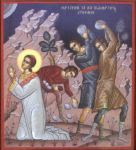







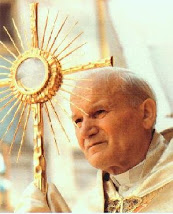

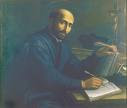




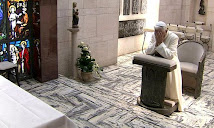




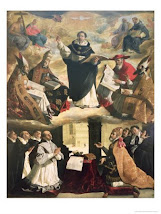
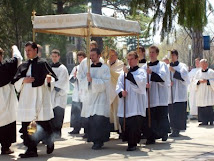

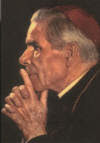


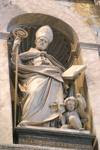



No comments:
Post a Comment